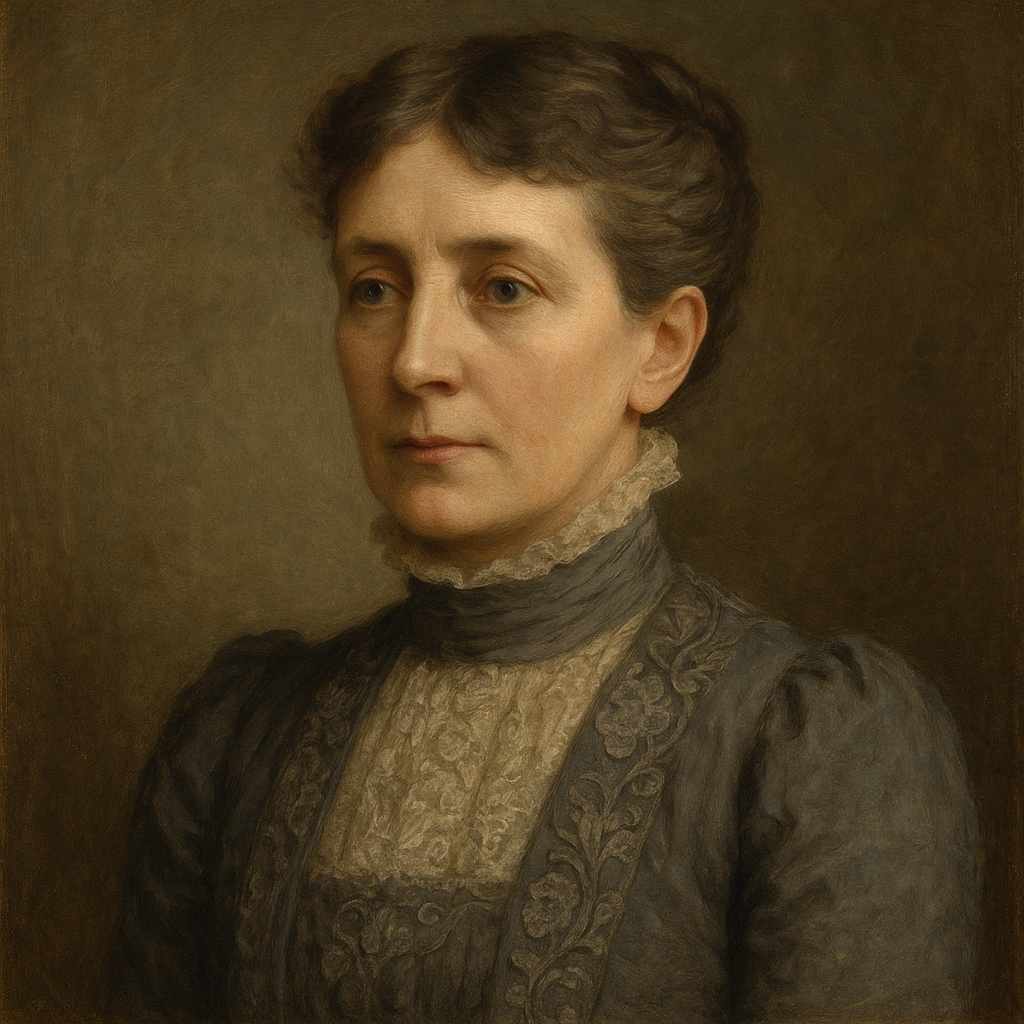5 Poems by Ada Cambridge
1844 - 1926
Ada Cambridge Biography
Ada Cambridge, also known by her married name Ada Cross, was an influential English-born Australian author who made significant contributions to Australian literature during the late 19th and early 20th centuries. Born on November 21, 1844, in St Germans, Norfolk, England, Cambridge would go on to become one of the first Australian women to make a living from her writing.
Cambridge's early life in England was marked by a keen interest in literature and poetry. She began writing verse in her teenage years and published her first book of poetry, "Hymns on the Litany," in 1865 when she was just 21 years old. This early success laid the foundation for her future career as a writer.
In 1870, Ada married George Frederick Cross, a curate in the Church of England. Shortly after their marriage, the couple emigrated to Australia, arriving in Melbourne in August of that year. This move would prove to be a pivotal moment in Cambridge's life and career, as the Australian landscape and society would come to heavily influence her writing.
The early years in Australia were challenging for Cambridge. She faced the difficulties of adapting to a new country while also dealing with the demands of being a clergyman's wife in various rural Victorian communities. Despite these challenges, or perhaps because of them, Cambridge continued to write. Her experiences in the Australian bush and small towns provided rich material for her work, which often explored themes of marriage, social issues, and the role of women in society.
During the 1870s and 1880s, Cambridge was primarily known for her poetry and her contributions to Australian periodicals. She wrote for publications such as the Australasian, Melbourne Review, and Australian Ladies' Annual. However, it was her novels that would eventually bring her wider recognition and commercial success.
Cambridge's first novel, "Up the Murray," was serialized in the Australasian in 1875. This was followed by several other novels, including "A Marked Man" (1890), "The Three Miss Kings" (1891), and "A Marriage Ceremony" (1894). These works often dealt with controversial topics for their time, such as divorce, women's rights, and the challenges faced by women in marriage.
One of Cambridge's most notable characteristics as a writer was her realistic portrayal of Australian life and her exploration of social issues. She was not afraid to challenge the conventions of her time, particularly in her depiction of women's experiences. Her novels often featured strong female characters grappling with societal expectations and personal desires, themes that resonated with many readers.
In addition to her novels and poetry, Cambridge also wrote non-fiction works. Her book "Thirty Years in Australia" (1903) provides valuable insights into colonial life in Australia during the late 19th century. This work, along with her novels, has become an important historical resource for understanding Australian society during this period.
Despite her success and popularity in Australia, Cambridge maintained strong ties to England. She returned to her homeland several times throughout her life, including an extended stay from 1893 to 1908. During this time, she continued to write and publish, with her work finding audiences in both England and Australia.
Cambridge's later years were marked by continued literary output and growing recognition of her contributions to Australian literature. She returned to Australia permanently in 1908, settling in Melbourne. Her final novel, "The Making of Rachel Rowe," was published in 1914.
Ada Cambridge passed away on July 19, 1926, in Melbourne, leaving behind a significant literary legacy. Her work, which spans poetry, fiction, and non-fiction, provides a vivid portrayal of Australian life during a crucial period in the country's development. She is remembered not only for her literary achievements but also for her role in paving the way for future generations of Australian women writers.
In recent years, there has been renewed interest in Cambridge's work, with scholars recognizing her important place in the development of Australian literature. Her novels, with their nuanced exploration of social issues and women's experiences, continue to be relevant to modern readers, offering insights into both historical and contemporary concerns.
This text was generated by AI and is for reference only. Learn more
Username Information
No username is open
Unique usernames are free to use, but donations are always appreciated.
Quick Links
© 2024-2025 R.I.Chalmers (V2Melody).

All music on this site by R.I.Chalmers (V2Melody) is licensed under a Creative Commons Attribution-NonCommercial 4.0 International License.
Attribution Requirement:
When using this music, you must give appropriate credit by including the following statement (or equivalent) wherever the music is used or credited:
"Music by R.I.Chalmers (V2Melody) – https://v2melody.com"
Support My Work:
If you enjoy this music and would like to support future creations, donations are always welcome but never required.
Donate






